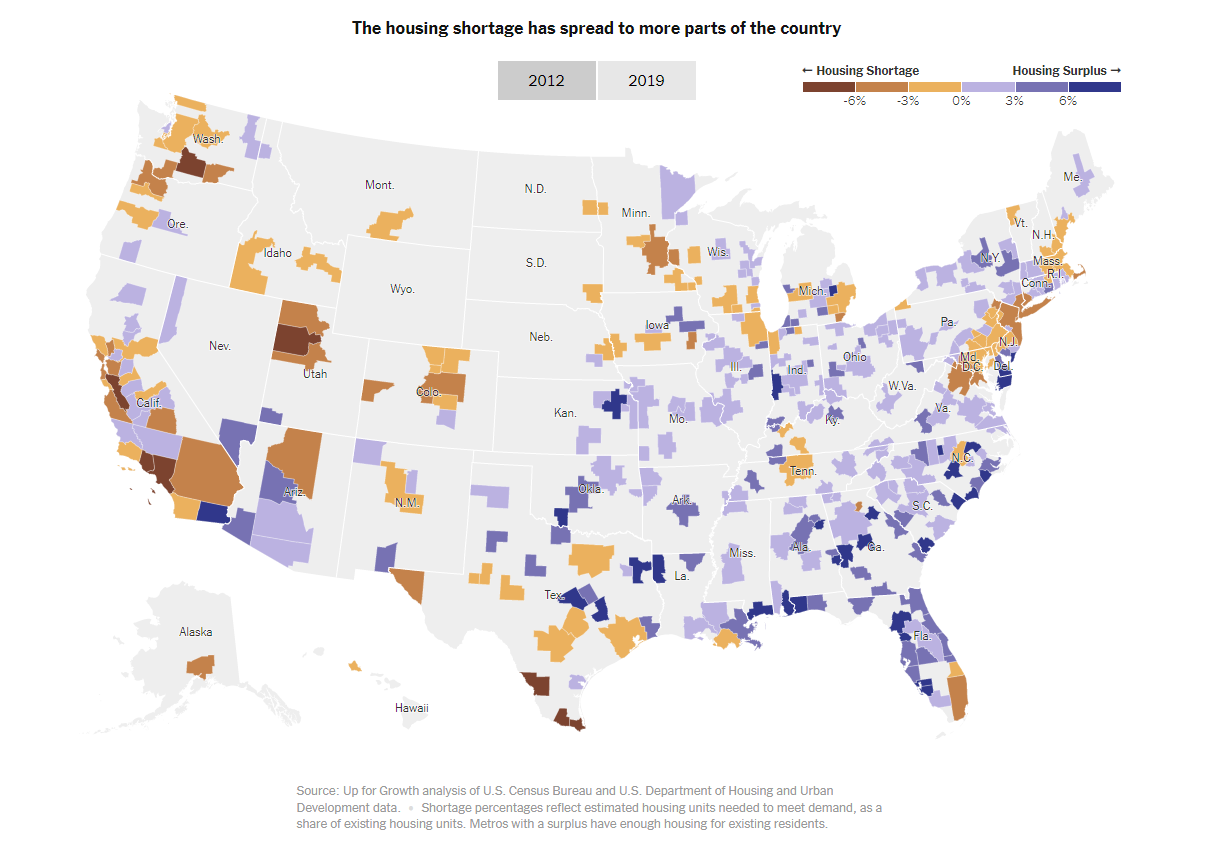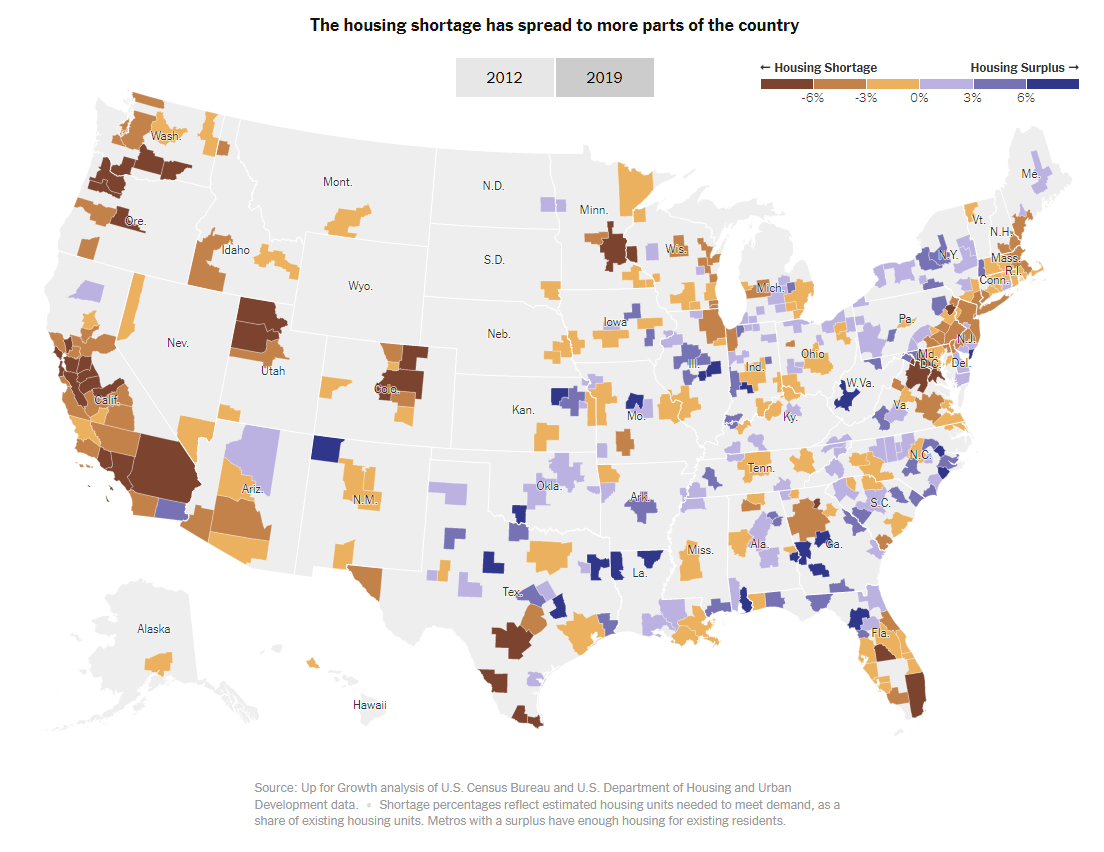OfTheCross
Veteran



The Housing Shortage Isn’t Just a Coastal Crisis Anymore
An increasingly national problem has consequences for the quality of American family life, the economy and the future of housing politics.
There is more housing under construction nationwide today than at any time since the 1970s, when many baby boomers were forming households (today’s big construction numbers reflect in part that it takes longer to build a house amid pandemic supply-chain delays). But rising interest rates and fears of a looming recession mean that home builders are already starting to pull back, Mr. Dietz said. And even at the current rate of construction, it would take years to dig out of the country’s deficit.
What would it mean, then, to reconceive of the housing shortage as a national crisis — with perhaps national answers, and shifting politics? Housing researchers at the libertarian-leaning Mercatus Center have often pressed the issue with conservative politicians.
“Before Covid-19, you would talk to people in Utah, in Tennessee, and they’d be like, ‘Oh yeah, this is a blue-state problem, Democrats don’t know how to run their state, we don’t have that problem here,’” said Nolan Gray, a former Mercatus affiliate and now the research director at California YIMBY, a group that advocates more housing. “And then of course starting in 2020, I’m getting frantic calls from people in states like Utah or Montana, or Florida increasingly.”
In a new book critiquing zoning, Mr. Gray describes how the federal government encouraged local communities to adopt zoning policies starting in the 1920s. It’s only fair today, he argues, that the federal government help undo zoning rules that have made housing more expensive.
Members of Congress of both parties have increasingly called for such an idea, in which the federal government would give priority for grants to local communities that ease zoning restrictions or build denser housing.
The Biden administration also released a long list of ideas this spring for boosting housing supply. It controls few levers to do that, especially without Congress funding more affordable housing programs. But White House officials say encouraging local zoning changes would be one of their best tools. That’s already happening to a modest degree with the bipartisan infrastructure bill.
At minimum, the housing shortage has become much harder to ignore in more places.
“In prior years, households had many more opportunities to move to locations where housing is abundant and affordable for a wide variety of income levels,” said Emily Hamilton, another Mercatus Center researcher. “But that’s becoming less and less of an option.”
Rising housing costs are a major driver of inflation that continued to worsen in June. But the problem also matters because people who can’t obtain the housing they need face a narrowing set of life options.
